Gardening: Small choices make a big difference
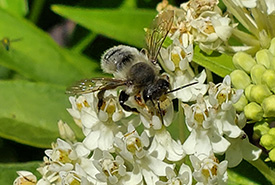
Megachile (leafcutter, mortar, and resin) bee on swamp milkweed (Photo by Sarah Ludlow)
Well, it is that time of year again — when the hope of spring and warmer temperatures is edging ever closer, especially in my home province of Saskatchewan. It is also the time when I begin starting my seeds to plant in my garden this...
Collaborating for conservation
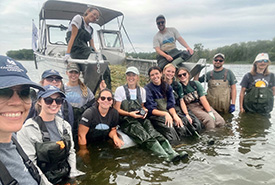
The cutting crew, comprised of staff from NCC, Georgian Bay Forever, Parks Canada, and the Severn Sound Environmental Association (Photo by Carolyn Davies/NCC Staff)
The natural world really is incredible. Spending time in it is a continual process of discovery, which is great for someone like me who is a life-long learner. For the past year and half at the Nature Conservancy of Canada (NCC), I’ve had...
Weeding out trouble: A summer as an invasive species sleuth
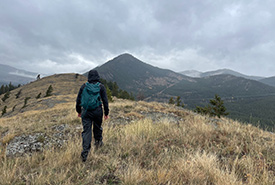
Hiking on the ridge to check on biocontrol releases (Photo by NCC)
This summer I had the incredible opportunity to work as an invasive species technician with the Nature Conservancy of Canada (NCC) in the Waterton and Castle Crowsnest Natural Area. This remarkable area is known for its diverse landscapes and...
The swamp’s unlikely hero: a beetle
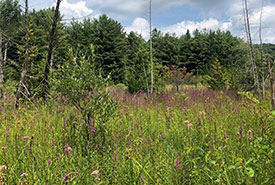
Purple loosestrife at Beaver Meadow wetland, ON. (Photo by Jen Arbeider/NCC staff)
When I first started as a conservation technician with the Nature Conservancy of Canada (NCC) in May, I was very excited to observe unique species of plants and wildlife, as well as work in a diversity of habitats and make a difference in...
Stanley the stowaway
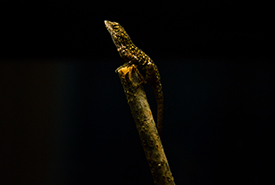
Stanely on a branch (Photo by Andrea Moreau)
It was past midnight, and I was just wrapping up my school work for the day when I saw it: a tiny brown lizard, only slightly larger than my thumb nail. The lizard was so small (and I was so tired) that I had to do a doubletake; but there it was,...
Fighting phragmites on Georgian Bay
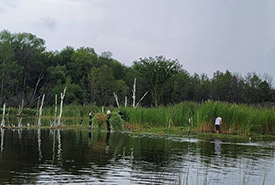
NCC staff and volunteers working to control phragmites on Georgian Bay, ON (Photo by Sara Meyer/NCC staff)
When I started with the Nature Conservancy of Canada (NCC) in the spring of 2022, I had limited knowledge of the invasive species called phragmites (phrag, as many in the conservation circle call it), and also known as common reed, the immense...
A "knot" so regular day in the garden
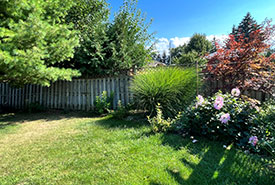
The back-garden (photo by Luca Brunato)
Back in late spring of 2020, I went back to my hometown of Niagara-on-the-Lake to help my father with the garden. This is an annual practice where I come over, and we spend the entire day weeding, pruning, shaping and landscaping our garden areas...
Tracing the roots of invasive species
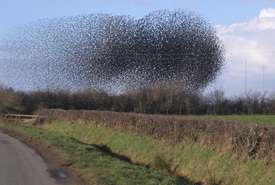
A murmuration of starlings (Photo by John Holmes, Wikimedia Commons)
In the media world of conservation, there seems to be no shortage of news on invasive species — plants, animals and organisms that were introduced (accidentally or deliberately) to an area outside of their native range and where their...
What happens to invasive species in the winter?
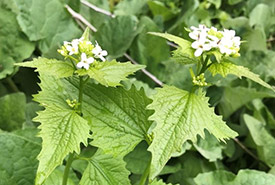
Second-year garlic mustard plant (Photo courtesy Invasive Species Centre)
With the change in seasons, invasive species may become out of sight and out of mind. But they always seem to come back every year. So where do they go in winter? Researchers are working to answer this question by investigating how invasive...
Mouse-ear hawkweed: Friend or foe?
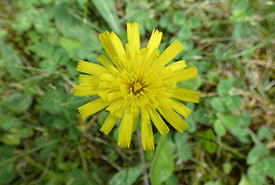
Mouse-ear hawkweed flower (Photo by mhalsted, CC BY-NC 4.0)
A species is considered invasive or alien when it is located outside its natural distribution and threatens humans and/or the environment. There aren’t a lot of clear answers about the impact of certain invasive species and the problem is...

